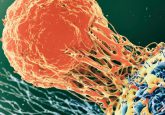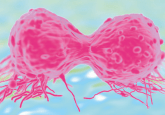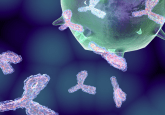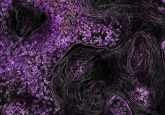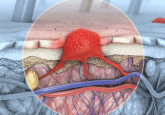PD-1 immunotherapy, nivolumab, made available on the NHS for melanoma patients

The National Institute for Health and Care Excellence (NICE) have recently approved the immunotherapy drug nivolumab (Opdivo®) to be available on the UKs National Health Service (NHS) for patients with resected stage III and IV melanoma. The PD-1 checkpoint inhibitor is the first of its kind to be used as an adjuvant treatment to reduce risk of recurrence post-surgery melanoma patients.
Melanoma incidence rates in the UK have more than doubled in approximately the last 25 years and are among the ten highest in Europe. Typically, 68% of patients with stage IIIb and 89% of those with stage IIIc melanoma may experience a recurrence of their cancer within 5 years of surgery. Prior to this, patients with resected stage III and IV disease may not have received an active treatment post-surgery; the usual course of therapy is simply routine surveillance to monitor changes.
“Until now, patients at high risk of melanoma returning after their initial surgery have had limited options to reduce their risk of recurrence, which, if it occurs, can prove fatal. Today’s recommendation opens up a new opportunity for these patients to access effective immunotherapy,” commented Pippa Corrie of Cambridge University Hospitals (UK).
The announcement from Bristol-Myers Squibb (NY, USA) stated that the treatment will be immediately available for NHS patients in England via reimbursement from the Cancer Drugs Fund (CDF). The treatment will be available to melanoma patients with lymph node involvement or advanced disease who have had complete surgical resection.
Support for the drug has come from the Phase III CheckMate-238 study where results demonstrated that, in comparison to ipilimumab (Yervoy™), nivolumab may significantly reduce risk of cancer recurrence.
Of the 906 stage IIIb/c and IV melanoma patients included in the study, 63% had significantly longer recurrence-free survival at 24 months post treatment than those treated with ipilimumab. Nivolumab also showed a lower rate of high grade adverse effects after 18 months. “Being diagnosed with stage III or IV melanoma is a daunting and frightening experience for patients, exacerbated by the fact that there are currently limited treatment options following surgery, regardless of BRAF mutations” comments Gill Nuttall, founder of Melanoma UK (Oldham, UK).
“Many patients are put under routine surveillance known as the “watch and wait” approach. This means that patients and their families often feel left in the dark, waiting for their disease to return or to worsen, before they receive treatment for the more advanced cancer. Increasing earlier stage access to effective treatments, such as nivolumab, will make a tremendous difference to many patients, and we welcome this new treatment in the adjuvant melanoma setting” Nuttall added.
Following review of further clinical trial data, nivolumab will be available throughout the NHA within the next 2 years.
